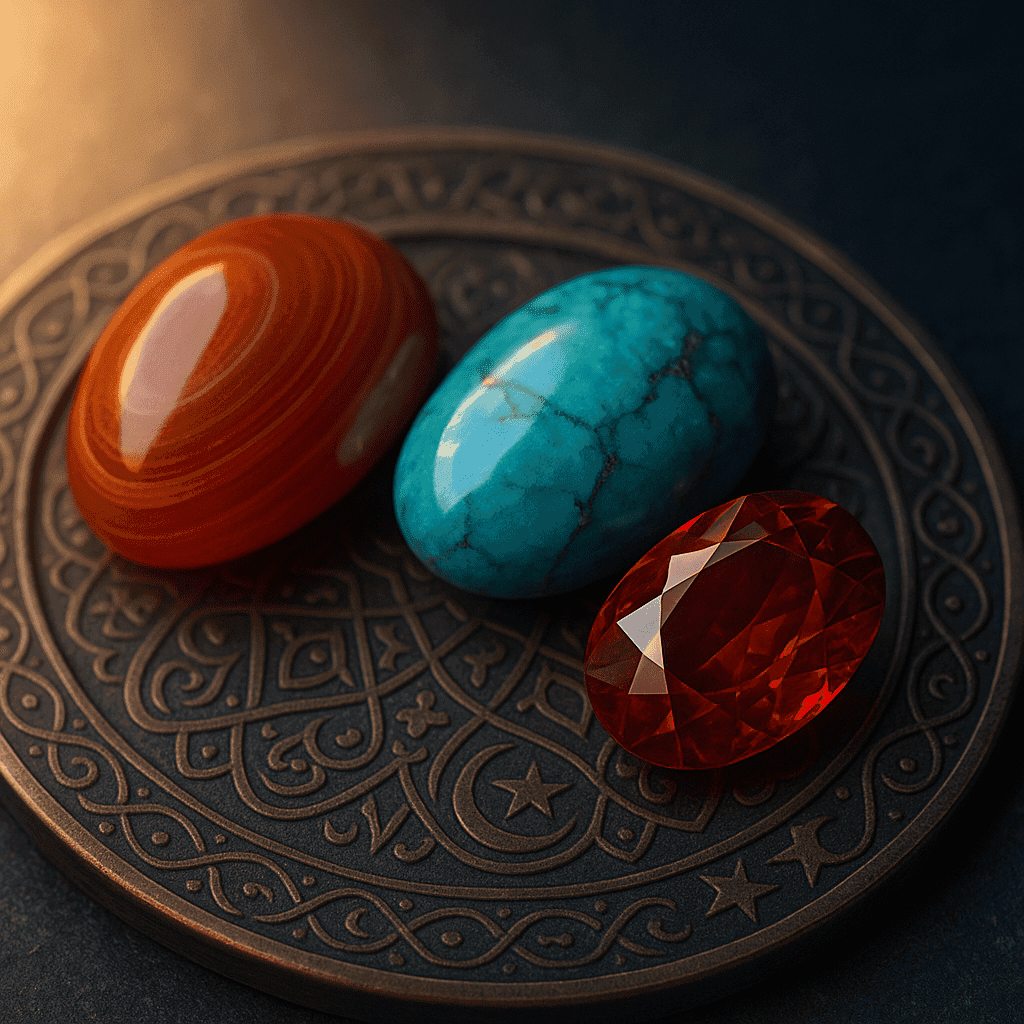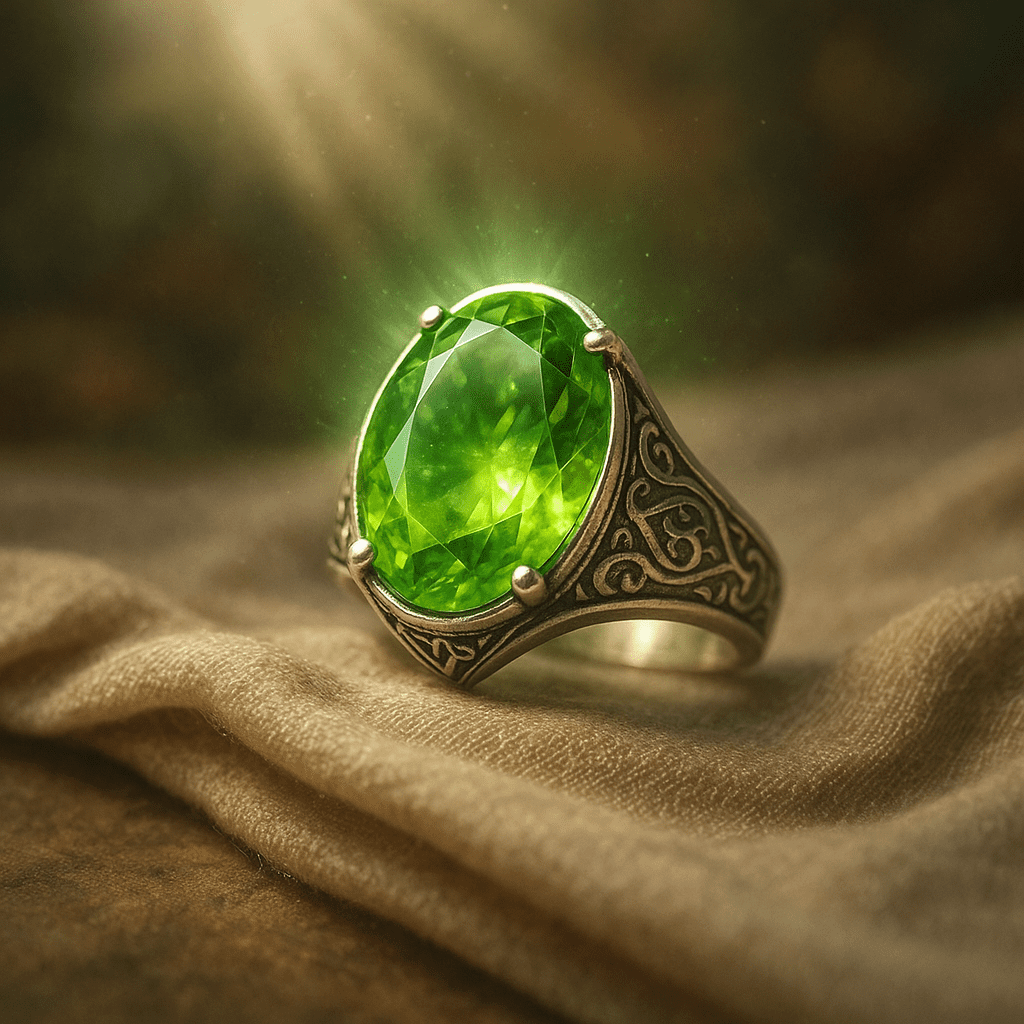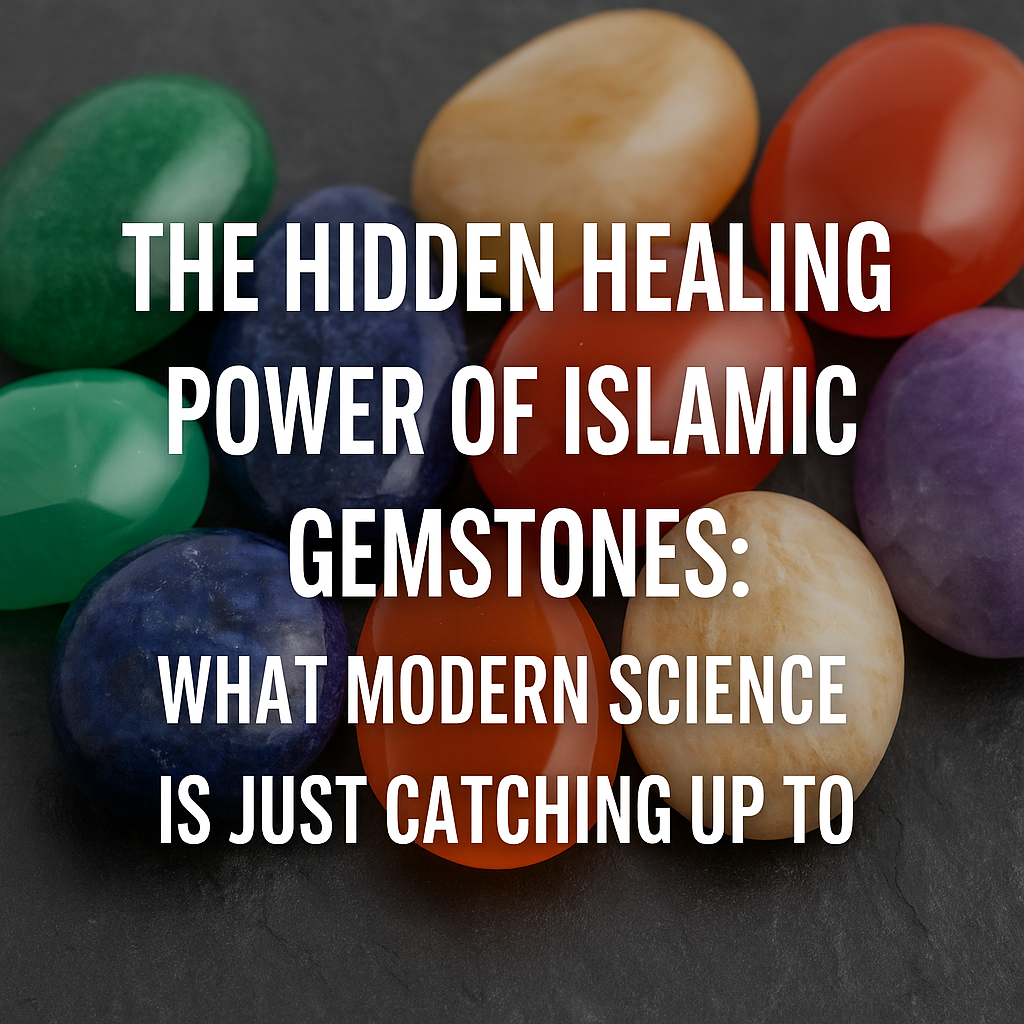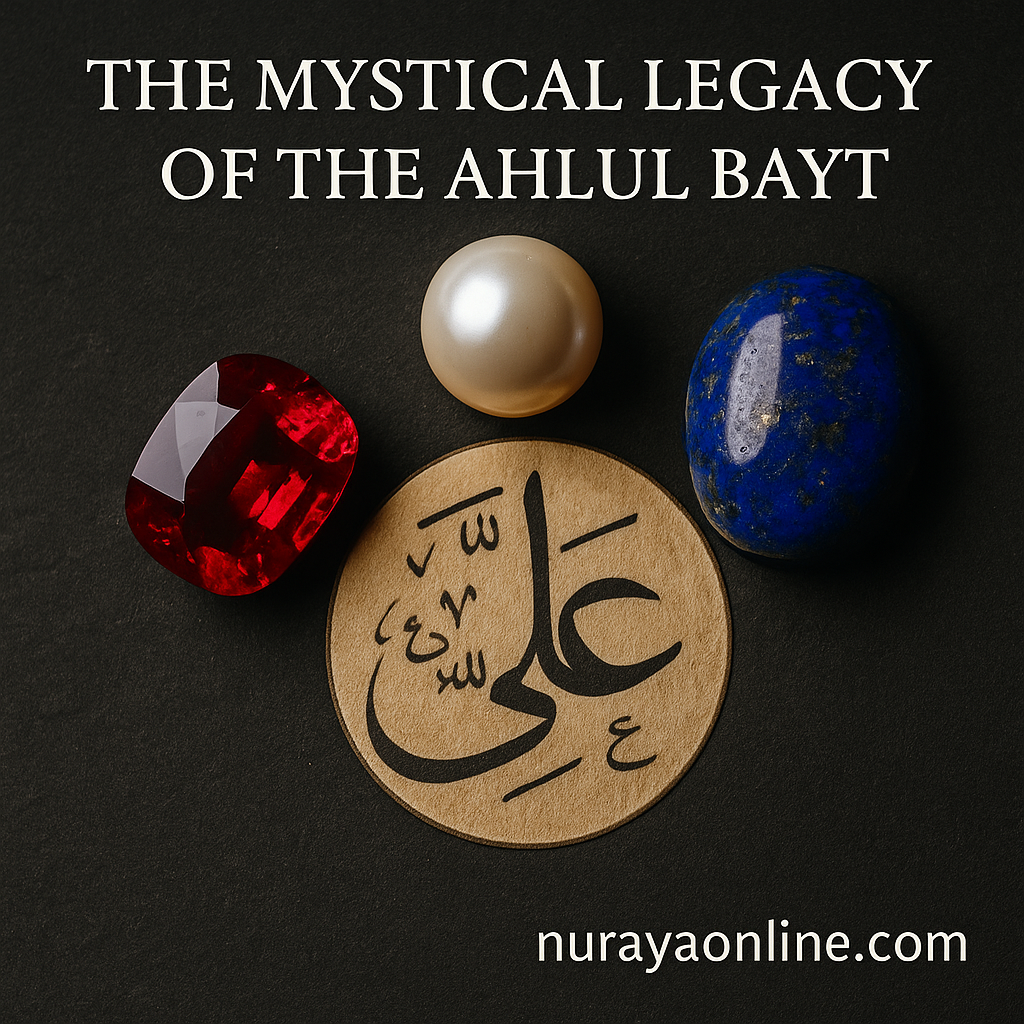

Introduction
Throughout history, gemstones have held a special place in many cultures — but in Islamic tradition, their significance is tied deeply to wisdom, spirituality, and remembrance of Allah. Certain stones like Aqeeq, Feroza, and Yaqoot have been honored for their noble connections to the lives of Prophets, companions, and the righteous.
Today, we explore the peaceful symbolism and hidden wisdom behind these cherished stones, with reflections rooted in authentic Islamic understanding.
The Importance of Gemstones in Islamic Tradition
Islam does not attribute mystical powers to stones themselves, but Prophet Muhammad ﷺ recommended wearing certain stones for spiritual and symbolic reasons. It was common among the companions to wear rings with stones like Aqeeq and Feroza as a sign of remembrance and humility before Allah.
Gemstones were seen as reminders, symbols of gratitude, and signs of spiritual connection, not objects of superstition or magic.
✅ Important Reminder:
In Islam, true power lies only with Allah SWT — stones are merely creations that carry symbolic beauty and reflections.
Aqeeq (Agate): The Stone of Blessing
Aqeeq is one of the most beloved stones in Islamic history.
- Recommended: Prophet Muhammad ﷺ was known to wear a ring set with Aqeeq. (Reference: authentic narrations)
- Colors: Usually red, brown, white, or black — each variety admired for its natural beauty.
- Symbolism: Gratitude, protection from hardship, reminder of Tawakkul (trust in Allah).
🌿 Wearing Aqeeq is seen as a peaceful Sunnah practice of the Prophet ﷺ, symbolizing gratitude and reflection.
Feroza (Turquoise): The Stone of Tranquility
Feroza is another beautiful stone admired for its stunning blue color.
- Meaning: Peace, victory, and hope.
- Historical use: It was often worn by Islamic scholars and warriors as a sign of spiritual optimism.
- Symbolism: Encouragement to maintain inner peace and faith through trials.
🌿 The calming blue of Feroza is a reminder of Allah’s mercy and vastness — like the endless sky.
Yaqoot (Ruby): The Stone of Passionate Faith
Yaqoot, or Ruby, is known for its deep red color, symbolizing deep love and strength of faith.
- Mention in Islamic Literature: Some Islamic scholars mention that Yaqoot was among the precious stones of Paradise (symbolically mentioned in Hadith commentaries).
- Symbolism: Sincerity in prayer, strong spiritual determination, passion for the truth.
🌿 Yaqoot reminds believers to have a pure heart and unwavering love for Allah.
Final Reflection
🌙 Stones in Islam are not tools of power but symbols of remembrance.
When worn with pure intention, they serve as gentle reminders to keep our hearts connected to Allah, remain humble, and seek inner beauty over outward glamour.
✅ True honor comes from Taqwa (God-consciousness), not from material objects.
“Indeed, the most noble of you in the sight of Allah is the most righteous of you.” (Quran, Surah Al-Hujurat 49:13)
Would you like to discover more about Islamic gemstones and their spiritual meanings? 🌿
✨ Explore deeper insights on individual stones — coming soon on NurayaOnline!
✅ Browse more reflections and spiritual wisdom here ➔ NurayaOnline Blog
🌿 Contribute to NurayaOnline
Support a journey of sacred insight, divine signs, and dream reflections.
Your contribution keeps our spiritual light alive.
🔒 Payments are securely processed by Google. No financial data is stored by NurayaOnline.



